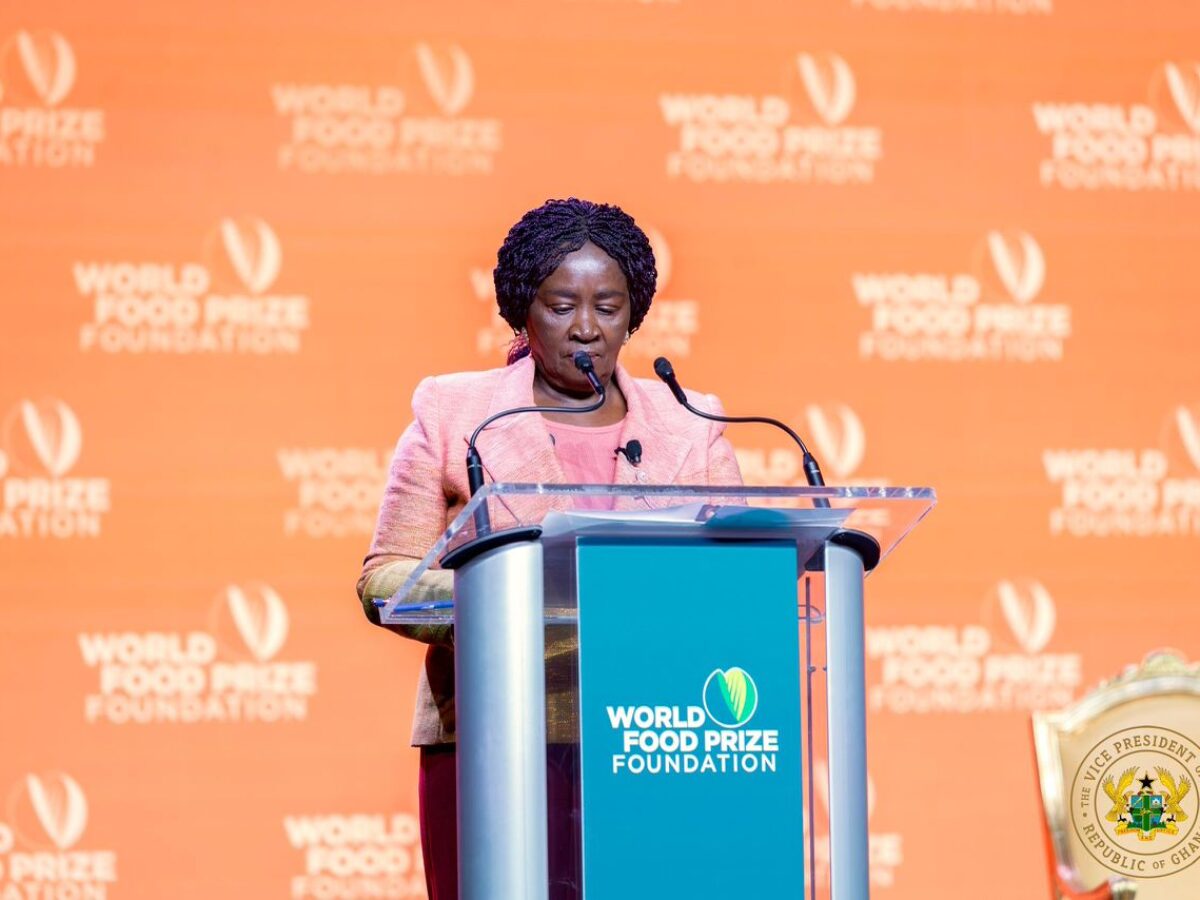Vice President, Professor Naana Jane Opoku-Agyemang, has stated government’s commitment to making Ghana self-sufficient in food production, through targeted agricultural reforms, youth-driven innovation, and women’s economic empowerment.
Delivering the keynote address at the closing session of the Norman E. Borlaug International Dialogue in Iowa, USA, Professor Opoku-Agyemang said Ghana’s agricultural transformation is not just an economic agenda but a national imperative to ensure food security, create jobs, and build sustainable livelihoods.
She paid tribute to Dr. Norman Borlaug, founder of the World Food Prize, describing him as “a moral compass who believed no child should go to bed hungry.” The Vice President noted that Borlaug’s legacy continues to inspire Ghana’s resolve to transform its agriculture through science, technology, and partnerships.

Highlighting Ghana’s current agricultural landscape, she observed that nearly two out of every five Ghanaians work in agriculture, yet the country still imports more than USD 2 billion worth of food annually, products that could be grown locally. “This must change,” she emphasized. “Ghana has the climate, the capacity, and the talent. What we need is greater coordination, innovation, and sustained investment.”
She outlined President John Dramani Mahama’s Feed Ghana Programme as a central pillar of this transformation agenda. The initiative covers 22 commodity value chains from grains, legumes, and vegetables to tree crops and livestock with a focus on strengthening irrigation, processing, storage, and digital integration across the sector.
Complementing this is the Grow24 Programme, an integral part of the 24-Hour Economy policy designed to modernize value chains, support agro-manufacturing, and promote export-ready agribusiness. A five-year Agricultural Risk Management Strategy targeting key commodities such as maize, tomato, and poultry is also underway.

The Vice President stressed that Ghana’s self-sufficiency goal will only be achieved if women and young people are placed at the center of policy implementation. She noted that while women make up more than half of Ghana’s agricultural workforce, they continue to face barriers to land ownership, access to credit, and training.
“To change this, the government is establishing the Women’s Development Bank to provide financial inclusion and empowerment,” she announced. “We are also investing heavily in youth-led agritech, mechanization services, and digital market platforms to attract more young people into modern farming.”
Professor Opoku-Agyemang also pointed to Ghana’s efforts to move beyond exporting raw materials to producing high-value finished goods. With the African Continental Free Trade Area (AfCFTA) headquartered in Accra, she said Ghana is strategically positioned to build regional value chains and expand agro-exports.

“Self-sufficiency is not isolation. It means building resilience through cooperation, innovation, and shared value,” she added. “We invite investors, governments, universities, and development partners to join Ghana in this transformation journey.”
After her address, the Vice President joined Dr. Akinwumi A. Adesina, President of the African Development Bank, for a fireside conversation on Ghana’s agricultural outlook and Africa’s collective strategy for sustainable development.
The ceremony concluded with the presentation of the 2025 World Food Prize to Dr. Marieangela Hungria, a Brazilian agronomist celebrated for her pioneering research on biological nitrogen fixation, a breakthrough that advances sustainable farming and global food security.
The Norman E. Borlaug International Dialogue, organized annually by the World Food Prize Foundation, brings together global leaders, scientists, and policymakers to discuss practical solutions for ending hunger and building resilient food systems worldwide.


